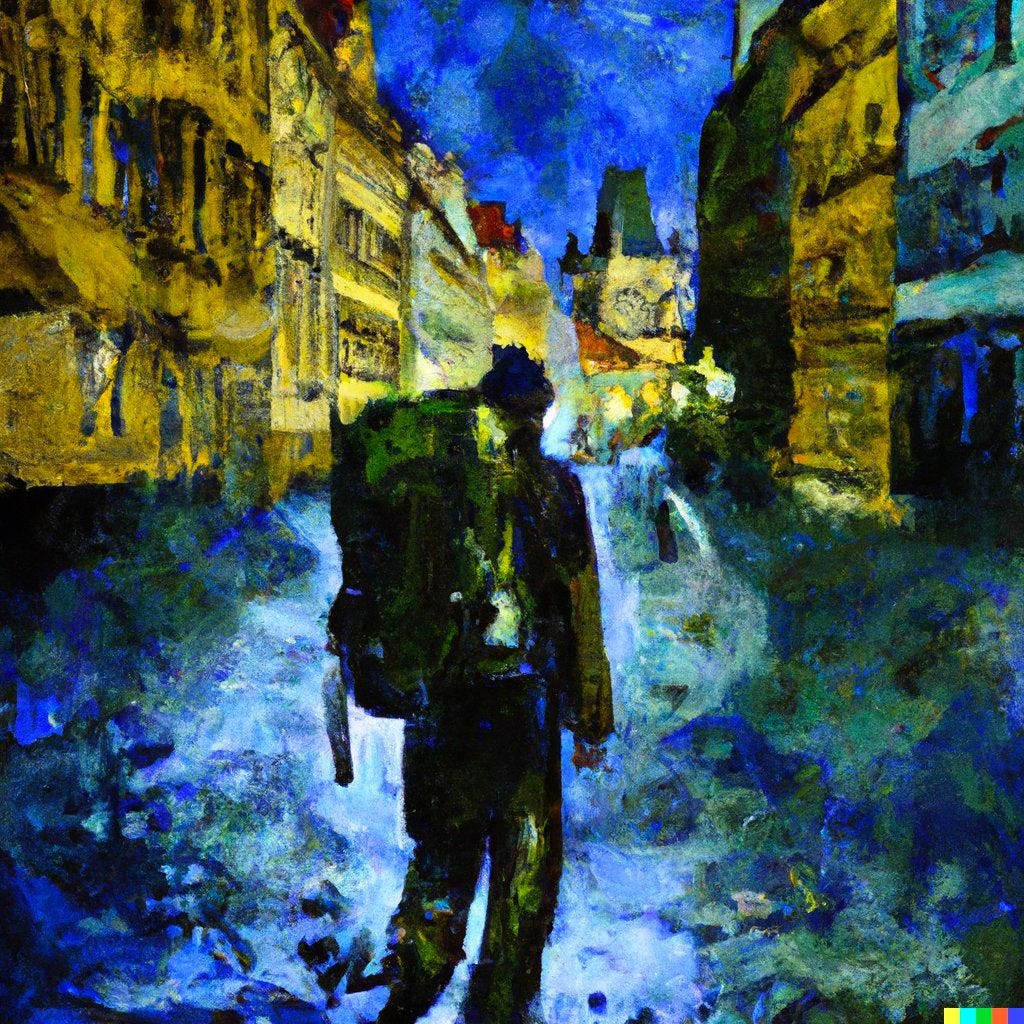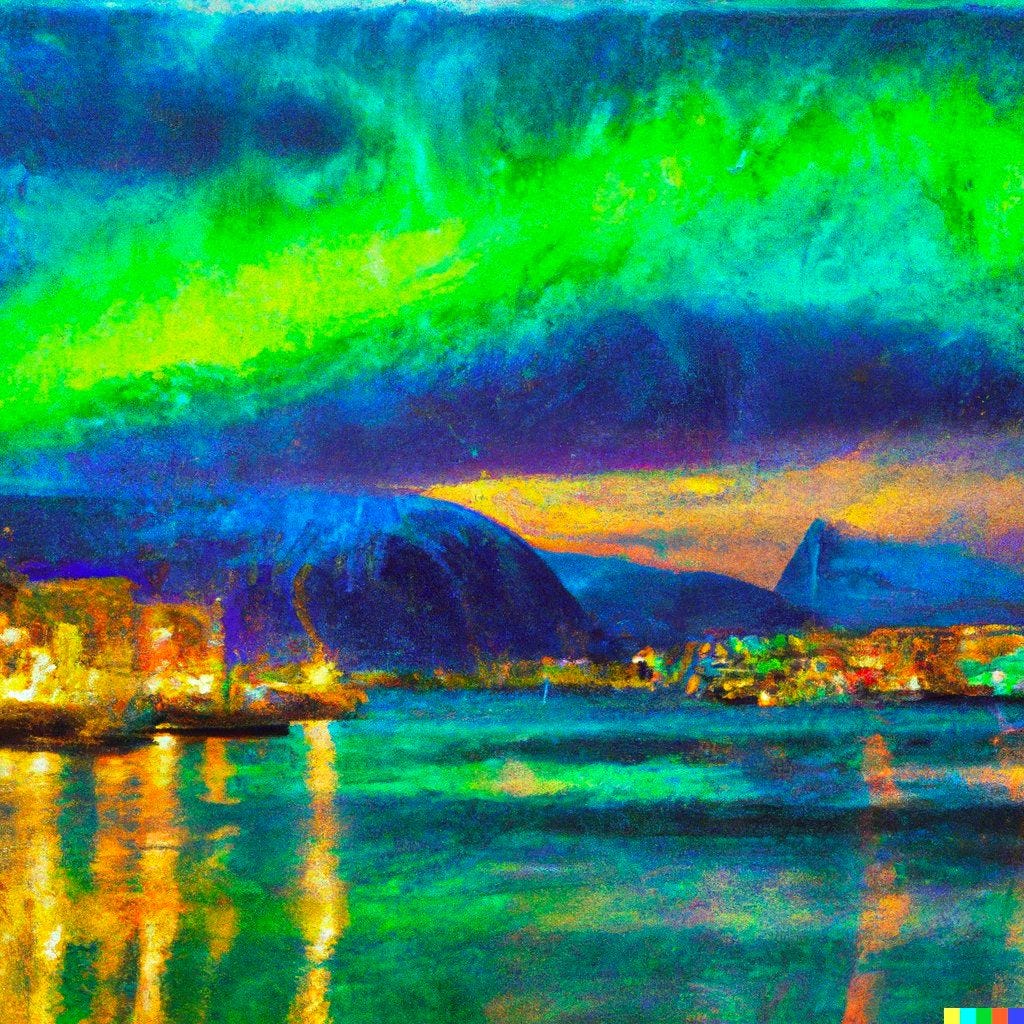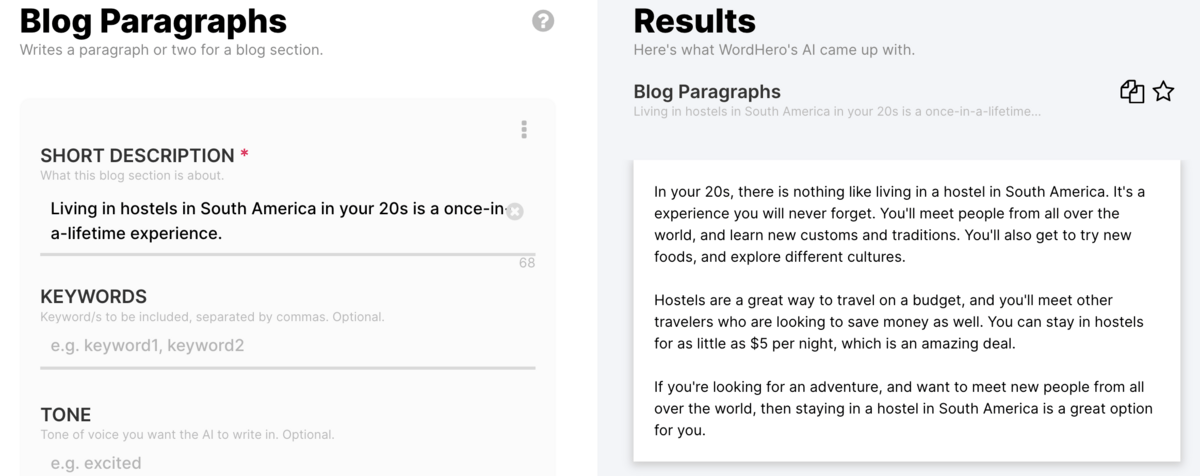Will AI Replace Creative Work?
Some thoughts on the newest wave of man vs. computer.
Welcome to Young Money! If you’re new here, you can join the tens of thousands of subscribers receiving my essays each week by adding your email below.
"Robots are going to take our jobs" has been an oft-cited concern over the last 100 years.
In 1930, economist John Maynard Keynes said, "We are being afflicted with a new disease of which some readers may not yet have heard the name, but of which they will hear a great deal in the years to come – namely, technological unemployment. This means unemployment due to our discovery of means of economising the use of labour outrunning the pace at which we can find new uses for labour."
In 1940, Senator Joseph O'Mahoney proposed taxing machines based on the proportion of jobs they took away. I have no idea how you tax a machine, but whatever.
The robot threat was addressed with renewed vigor in the 1970s as computer usage grew. Then UK Prime Minister James Callaghan hired a think tank to investigate problems caused by the new "microelectronic technology".
And in recent years, the advent of self-driving technologies, machine learning, advanced robotics, and AI has created a new wave of fear regarding the risk that technology replaces us mere mortals in the labor force.
We have always framed technology as a threat to the boring, tedious, repetitive jobs. The assembly line and fast food workers, IT consultants, and other roles that involve a series of monotonous actions were those most at-risk.
Ironically, the newest wave of AI technology threatens the opposite end of the labor spectrum: the creators.
Last week, I listened to a "podcast" where Joe Rogan interviewed Steve Jobs. Of course, this wasn't a real interview. Jobs has been dead for years, after all. However, Podcast.ai used AI tech to create an entire conversation between the duo.
Was it completely realistic? No. But it was.... pretty good. Definitely not Rogan quality, but not terrible either.
Over the weekend, I messed around with the popular AI image generation tool DALL-E. This one blew me away. You just type a few prompts, and DALL-E will generate an image that matches your text. Here were a few of mine:
"Backpacker walking through the streets of Prague at night, in a Van Gogh-style painting"
"Northern Lights over Tromso, Norway in a Van Gogh-style painting"
"Sunset over Budapest in a Van Gogh-style painting"
If you can't tell, wanderlust is hitting hard right now. I'm seriously considering ordering a canvas print of the Prague picture. Anyways, ignoring the fact that I really, really like Van Gogh style paintings, DALL-E is wild.
After checking out audio and visual AI, it was only natural to investigate a domain I know best: writing. Dozens of AI writing tools have hit the scene over the last year, so I wanted to see just how well the computer can write.
The results? Not too bad. Here are a few prompts I tested:
Random career advice.
Musings from a South American vagabond.
A conspiracy theory.
Some thoughts about our obsession with money.
The AI isn't bad, and it's safe to assume that it will only get better. This raises the newest iteration of the age-old question: Are the 'robots' going to take my job (or in this case, replace my content)?
The answer: that depends.
Over the last 100 years, has technology rendered humanity workless? Not at all. In fact, each wave of new technology ushered in an era of new opportunities. James Callaghan would be shocked to see how much economic opportunity has been unlocked by the computers that he was so concerned with investigating.
AI is simply the newest rendition of a timeless trend. New tech emerges, and new opportunities come with it. On a societal scale, AI won't replace our work. It fact, it will probably enhance it. However, AI can certainly replace different individuals.
My hypothesis is that low-quality content now faces an existential threat, and high-quality content is even more valuable. Look at the AI-generated paragraphs below:
This computer-generated text is identical to half of the content that you see online these days. Every single humblebrag on Linkedin, every single Twitter thread rehashing the same generic advice about working hard, and every single half-baked blog post that lacks substance just got replaced by a computer program.
Vanilla content that is broadly applicable is easily replicable through a computer interface. Why wouldn't it be? Engagement hacks and AI both feed off of algorithms, after all.
However, the combination of AI and this algorithm-centric content cycle benefits the creator with a unique voice.
AI recognizes patterns to generate prose, essentially recreating that which has already been written a million times over. It is an efficient machine. What AI fails to do is to combine novel ideas and a touch of personality to create something entirely new.
The writer who injects his stories into the paragraphs, who connects with his audience through the sharing of vulnerable moments, who evokes emotions, and who inspires feelings of excitement, fear, understanding, and wonder just became all-the-more valuable.
The most valuable creators don't derive their value from the basic information they convey. If they did, Wikipedia would be the only source of recreational reading.
The most valuable creators construct bridges between seemingly unrelated ideas. They add a touch of humanity to quantitative data. The most valuable creators reveal the thoughts that you have always had, but you couldn't put into words.
AI can't build those bridges. It lacks the humanity present in "real" writing. AI provides a cookie-cutter mold for those who need a guide, but it can't build something new from scratch.
Sure, an AI program could generate three paragraphs explaining why it's important to travel while you're young.
And for the high school kids taking 10th grade English, AI-generated essays can land you A's on your grading rubric.
But AI can't mix ideas about the shortness of life, the desire to explore, and the longing to maximize one's youth with personal anecdotes and a few quotes from the autobiography of America's most interesting actor to weave a compelling narrative that inspires someone else to rethink their priorities in their own life.
AI conveys known facts and well-documented ideas. But good writing? Good writing shamelessly chops away at the fluff and connects with the reader's soul.
AI is like the highway: it gets you from point A to point B, but you won't see anything new along the way. Good writing provides the reader with backroads, with a scenic route. And as more content turns to the highway, the best backroads become even more valuable.
- Jack
I appreciate reader feedback, so if you enjoyed today’s piece, let me know with a like or comment at the bottom of this page!
Young Money is now an ad-free, reader-supported publication. This structure has created a better experience for both the reader and the writer, and it allows me to focus on producing good work instead of managing ad placements. In addition to helping support my newsletter, paid subscribers get access to additional content, including Q&As, book reviews, and more. If you’re a long-time reader who would like to further support Young Money, you can do so by clicking below. Thanks!










